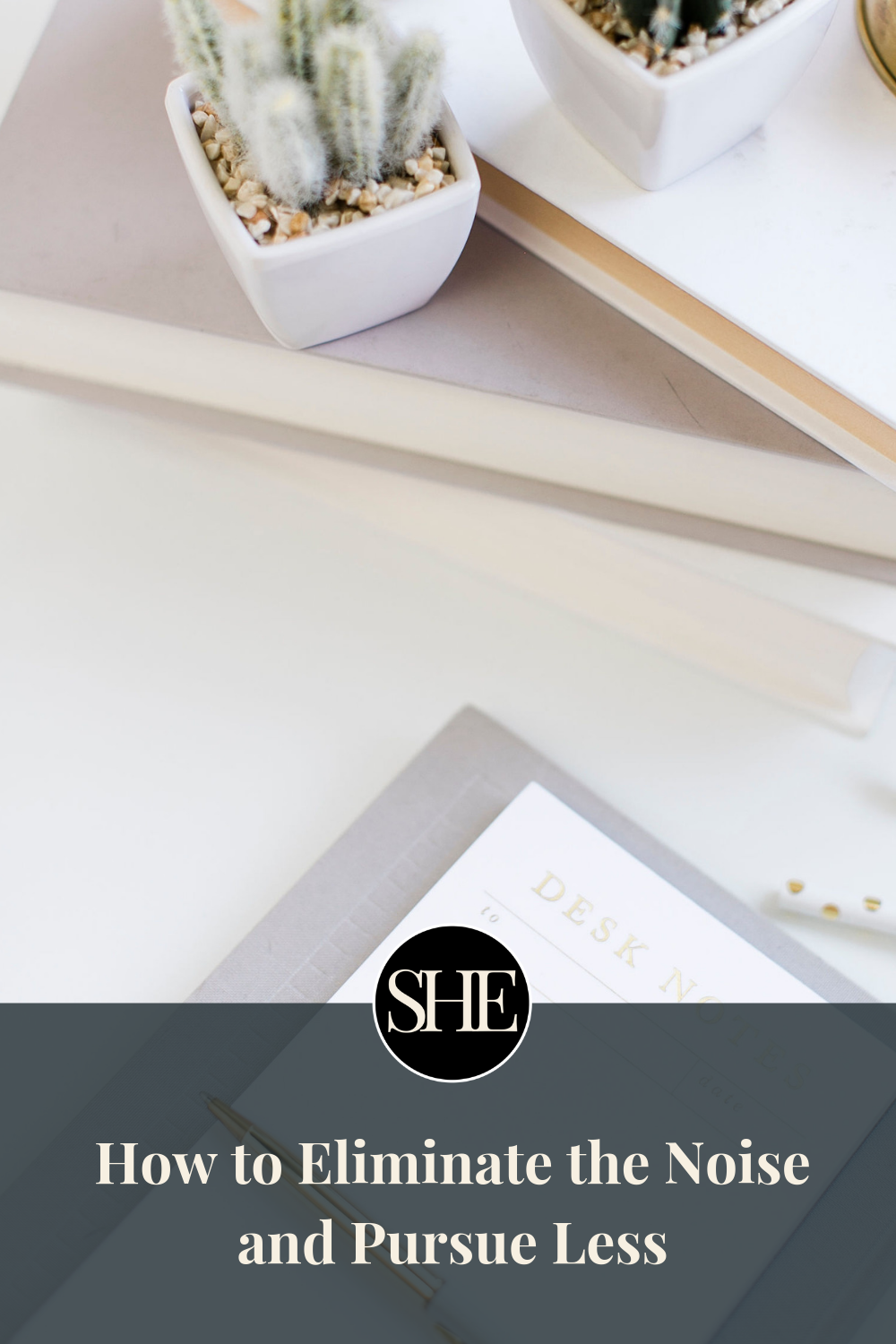How to Eliminate the Noise and Pursue Less
In order to contribute to this world in a way you are designed to do and live the life you desire, you must be willing to cut out what is not essential in your life.
The difference between the way of the Essentialist and the way of the Nonessentials can be thought of like this: Think of two circles one on the left and one on the right. Each circle represents energy. The circle on the left has arrows coming from the circle pointing outward, around the entire circle. The circle on the right has one long arrow coming from the circle on the right. The Nonessentials is the one on the left that exerts his or her energy in all different directions to represent the trivial many vs the Essentialist distinguishes the trivial many from the vital few. Instead of exerting energy into many different directions, how can you define the vital few and invest your energy more intentionally.
The essentialist lives by design, not by default. Essentialist has a very disciplined, systematic approach for determining where her highest point of contribution lies.
In our culture, it has been conditioned and become the norm to be punished for good behavior (saying no) and rewarded for bad behavior (saying yes). We live in a world where choices and opportunities are endless.
We first must figure out what is essential in our lives and what is not essential.
We must distinguish our vital few from the trivial many. This helps us eliminate the nonessentials, and then removes obstacles. The essential things have a clear, smooth passage.
Core mindset of an essentialist is that there is power in choice, almost everything is noise (except a few things are of exceptional value), the reality of trade-offs.
Being essential is the disciplined pursuit of less.
Because if you don’t determine what is essential and prioritize your life, someone else will. Your dreams will pass by with each day, procrastination will set in and you’ll tell yourself there is always tomorrow.
If you’re able to pull out your phone, grab a sheet of paper, open up the note section on your computer…if you’re driving, wait until it is safe, but start jotting down what is essential in your life and what is not, what is just noise?
Being essentialist isn’t about going back to the stone age, or disconnecting from the internet, it is about discerning what matters and applying the principle of “less but better"
Three fallacies that you must let go of in order to live a more essential life and to reach your goals is to change the following phrases in your vocabulary:
“I have to"
“It’s so ‘important’"
“I can do both"
Here’s why:
Language is the first and easiest thing to change in order to create the life that we want. When you hear yourself saying
“I have to…” do BLANK. You create the urgency and belief that there is no way you could NOT do it. It is easy to find ourselves saying “I have to” to something when in reality we never have to do anything. If we truly look at what we believe we “have to do” we really don’t. Yes, might there be consequences, sure, but we don’t have to do anything. I know this might sound crazy at first. For example, we don’t have to get our car cleaned or clean or house or out of a Christmas tree, go back to our parents home for the holidays. Instead, know that you are CHOOSING, to all of those things. When you swap the “I have to” for the “I chose to” you're able to reclaim your personal power.
Non-essentialists thinks “I can do both” and asks, “How can I do it all” whereas an essentialist asks “What is the trade-off I want to make” and “What can I go big on?"
“It’s so ‘important’"
If everything is a priority, then nothing is a priority. Become okay with giving up the nonessential to live a life that IS essential. There is always a trade off. Believing you can do both is a lie that has to lead us to believe that multi-tasking is a skill and efficiency. Why do three 3 task mediocre when you can do one thing really really great?
“What we can’t do is concentrate on two things at the same time. When I talk about being present, I’m not talking about doing only one thing at a time. I’m talking about being focused on one thing at a time. Multitasking itself is not the enemy of Essentialism; pretending we can “multi-focal” is.
Recognize that there are trade offs from your choices
As you practice on becoming more essential, stripping the noise and getting clear on what you want at the end of 2019 to happen there are few other things that come with being an essentialist.
Essentialists invest the time they have saved by eliminating the non essentials into designing a system to make execution almost effortless. This is where having constraints in your life actually make it easier and more productive. The Essentialist designs a routine that makes achieving what you have identified as essential the default position.
Of course, we don’t have to try to replicate Gandhi to benefit from his example as someone who lived, fully and completely, as an Essentialist. We can all purge our lives of the nonessential and embrace the way of the Essentialist — in our own ways, and in our own time, and on our own scale. We can all live a life not just of simplicity but of high contribution and meaning.
Working hard is important. But more effort does not necessarily yield more results. “Less but better” does. If it isn’t a clear yes, then it’s a clear no.
This also requires you to decide which problem(s) you want. “In the simplest terms, straddling means keeping your existing strategy intact while simultaneously also trying to adopt the strategy of a competitor. The impacts of straddling and why it is important to focus on ONE-thing at a time. Was there ever a business strategy more applicable to the creative life than this? The problem with creativity as a business is that each person must blaze their own trail.
You can draw inspiration from someone else’s path, but you can never recreate it. It’s a terrible idea. You don’t want to be that person. So you try stuff. And more often than not, you give up before anything yields results. McKeown talks in the book about Continental Airlines, which tried to replicate the success of Southwest Airlines by following some of its approaches, such as cutting out meals in-flight. But it didn’t work, because the airline continued to straddle by doing everything the old way at the same time.
To become a different, newer and better version of yourself, you must do things that you haven’t done in the past. This doesn’t mean that in order to become that better version of yourself you must become essentialist but it does mean that in order for you to become that person and build that business you must get clear on what it looks like, what it is and what it is not. You must get clear on what is essential in order to make it a reality.
So now the question is my friend, WHO is the person you want to become, what IS that business you want to build that you’ve been after for so long, what is the next step in your business you want to take. What does it look like?
I don’t know about you but this year went by in a blink of an eye. Decisions are the pathway to power. Your whole life can change in just one day - the day you determine not just what you’d like to have in your life or what you’d like to become, but when you decide who and what you are committed to having and being in your life.
If you don’t set a baseline standard for what you’ll accept in your life, you’ll find it is easy to slip into behaviors and attitudes or a quality of life that’s far below what you deserve.











